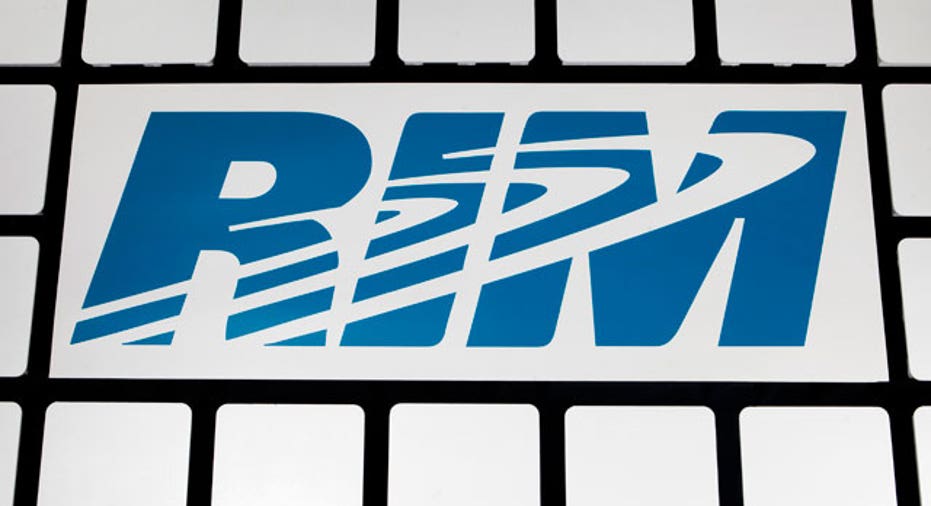How to Save RIM: ‘Pull a Reverse Apple’

We all love to point and laugh when bloggers and tech writers tell us what massive multi-billion dollar public companies “need to do” to survive, or how they can easily “be saved.” When the writer offering advice is the co-founder and former CEO of a successful public company, however, his advice might at least be worth considering. EarthWeb/Dice co-founder Jack Hidary oversaw a record-breaking IPO in 2007, and he has taken to Fortune to offer some free, unsolicited advice for struggling smartphone vendor Research In Motion (RIMM): “Pull a reverse Apple.”
Shares of RIM stock are hitting record lows as investors wonder just how bad things might get over the next six months as the company preps its first BlackBerry 10 smartphone. While RIM continues to weigh all its options, Hidary offers one that doesn’t appear to be anywhere near the top of the company’s list.
In 2006, Steve Jobs’s Apple (APPL) ditched PowerPC in favor of Intel chipsets across its PC line, allowing Apple to focus more on its own software and the associated user experience. RIM, Hidary suggests, should consider doing the opposite.
BlackBerry users love RIM’s hardware according to Hidary, and RIM should consider coupling its hardware expertise with a more established software ecosystem.
BlackBerry 10, the next-generation platform RIM is hoping to roll out in the first quarter of 2013, will start from square one. Apple’s iOS and Google’s Android operating systems are supported by massive ecosystems and tens of thousands of developers. According to some, on the other hand, BlackBerry 10 may actually be losing developer support right now and we’re still six months away from launch.
See more tech stories on the FOX Business Technology homepage.
RIM should switch to Android, Hidary believes. Android is generally a consumer-focused platform, and RIM should set out to build its own version of Android for business.
“RIM can easily jettison its software platform, which has failed to attract developers, and license Google’s (GOOG) Android while keeping its unique line of Blackberry hardware,” Hidary writes. “RIM can add value on the Android platform by delivering a business version of the OS. This would include built-in hooks for Salesforce.com, Oracle, SAP and other enterprise platforms.”
If Google won’t provide RIM with the support it needs for some reason, Hidary thinks the Waterloo, Ontario-based vendor should fall back on Microsoft’s (MSFT) Windows Phone platform. Considering the rough time Nokia is having with its transition, however, that might not be the best idea.
Hidary certainly makes some interesting points, and a truly enterprise-oriented version of Android would likely appeal to a wide range of businesses. He’s also right about RIM’s hardware chops — BlackBerry keyboards are still unrivaled and as we’ve seen with the Bold 9900, RIM can build a gorgeous smartphone. Whether or not the company can pivot with or without Android, however, remains to be seen.




















